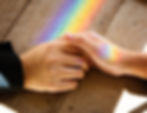Written by Jerlyn Lam

“Jerlyn I think you have OCD”, my friend jokingly said as he watched 13 year old me anxiously scrub away at the rust that had gotten on my bag from a rusty chair leg. I desperately wanted to get it off, because I was convinced it would poison and kill me in three hours. I knew he was just teasing me, but that night (after cautiously stuffing the bag in my closet and never touching it until a year later) I googled “OCD” – and everything I had been through the last year suddenly made sense.
Obsessive Compulsive Disorder is a condition in which people have recurring, intrusive thoughts, ideas or images (obsessions) that may often drive them into repetitive behaviours (compulsions).
These compulsions are done in an attempt to bring down feelings of guilt, fear or anxiety that arise from the obsessions, or as a way to prevent something bad from happening. Over the last 12 years with OCD, my symptoms have ranged in manifestations and intensity. Some years I find myself constantly fearing for my death and avoiding objects like rust, rubber bands and pencil lead, other years I engage in tedious praying rituals because I can’t stop thinking about Jesus or my teacher naked.

Even though I first found out about OCD when I was 13, I only sought treatment at 22. For the longest time, I didn’t think I needed or deserved help. I convinced myself I wasn’t sick enough, that I was just exaggerating things, or that it was all just a cry for attention. It wasn’t until one night I found myself rolling in bed for 5 hours, unable to sleep because I was filled with this constant urge to roll my eyes and poke them with my fingers. The next day I went to work, exhausted, eyes sore, vision blurred, before I decided I had had enough – so I made an appointment with Community Health Assessment Team (https://www.chat.mentalhealth.sg) that afternoon.
Within that month, I was referred to see a psychiatrist and therapist at IMH. I had convinced myself for the last few years that I was fine with OCD, but getting on medication made me realized that it was possible to NOT constantly be on overdrive or always filled with dread, anxiety, and a fear of impending doom. For the first time in my life, I felt calm and at peace. It was strange and took a while to get used to, but it was… nice. I also went for therapy, where my therapist and I worked together on coping with the anxiety and reducing my compulsions. Therapy is extremely difficult because it forces you to confront your fears – but it really does help.

While my story thus far may seem like a very straightforward process to recovery, it definitely isn’t the case. Even getting on medication and feeling calm for the first time was ironically difficult for me at first. In a strange way, I had gotten so used to my anxiety and OCD that the idea of completely eradicating it was hard to accept. While I’m still trying to resolve these feelings of conflict, seeing the positive changes in my life has been comforting. Getting medication and therapy has allowed me to focus more on my work, build better relationships and just overall be in more control of my emotions and mental wellbeing.

I think what helped me the most is understanding that the road to recovery is never linear. Some days my obsessions and compulsions hit a little harder than usual, but I try not to get discouraged and (as cheesy as it sounds) hope for a better day tomorrow. I’m also incredibly fortunate to be surrounded by a strong social support system, with friends and family who never make me feel ashamed or alone on this incredibly long and complicated journey.
If there is one thing I’ve learnt over the 12 years with OCD, it is that I will always be figuring and working things out, and that’s okay ☺